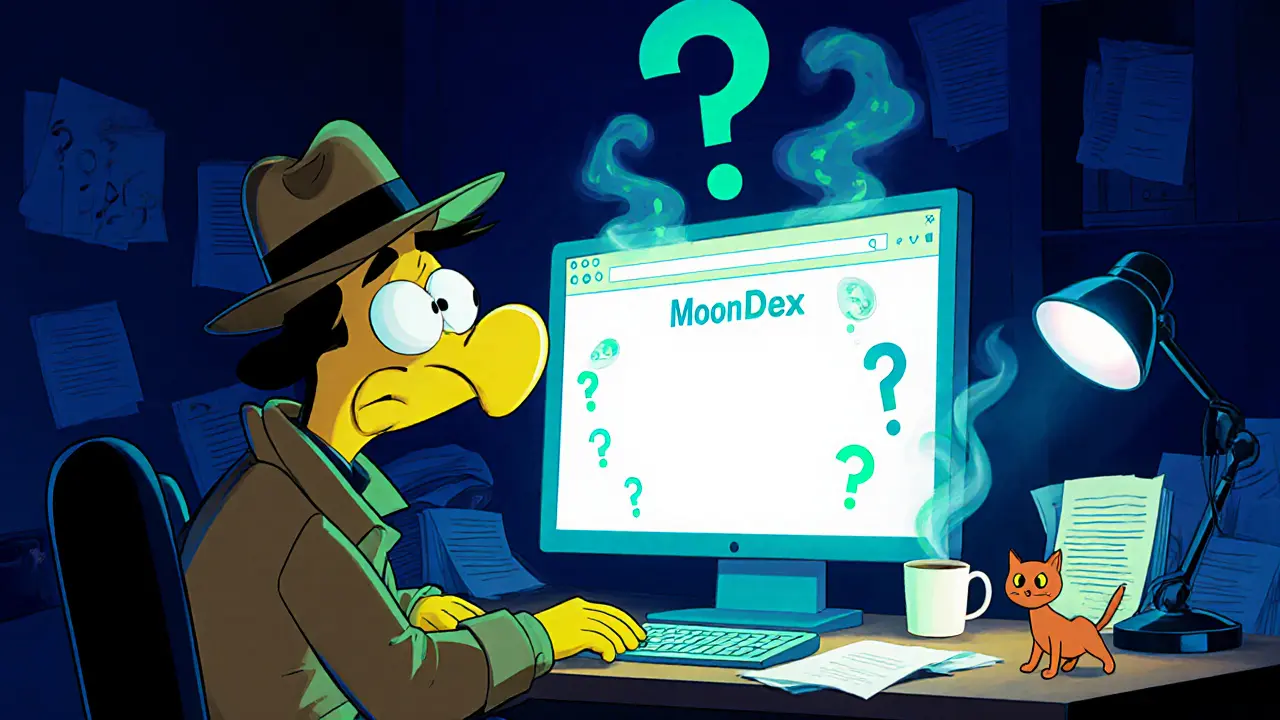MoonDex Review: A Hands‑On Look at the Decentralized Exchange
When exploring MoonDex, a decentralized exchange built on the Cosmos SDK that aims for low fees, fast finality, and cross‑chain swaps. Also known as MoonDex DEX, it offers native governance through its utility token, on‑chain order books, and a liquidity mining program, you instantly run into three core ideas that shape its whole experience. First, the very notion of a decentralized exchange, a peer‑to‑peer trading platform powered by smart contracts instead of a central order‑matching engine defines the trust model – you never hand over custody of your assets. Second, tokenomics, the economic design of a platform’s native token, including supply, distribution, and utility dictates incentives for traders, liquidity providers, and voters. Third, liquidity, the depth of available assets that lets users trade with minimal slippage is the lifeblood that keeps transaction costs low and order execution swift. In short, a MoonDex review encompasses tokenomics analysis, requires liquidity provision, and sits squarely inside the broader DeFi ecosystem that influences its performance.
Why MoonDex Matters for DeFi Traders
The appeal of MoonDex comes from how it blends familiar DEX mechanics with a few twists that matter to real‑world traders. Its native token, often called MOON, does more than just reward liquidity providers – it powers on‑chain voting, grants fee discounts, and can be staked to earn part of the platform’s protocol revenue. This token‑centric design means that tokenomics aren’t an afterthought; they are woven into every user action. For example, a trader who supplies liquidity to the USDC/ETH pool automatically earns MOON tokens, which can later be used to vote on fee‑structure proposals or burned to reduce circulating supply, creating a feedback loop that aligns incentives. Meanwhile, MoonDex’s order‑book model, unlike pure AMM designs, gives price discovery a more traditional feel while still retaining the security of a smart‑contract layer. Because the order books are settled on‑chain, DeFi influences MoonDex’s finality guarantees – faster block times on Cosmos translate to near‑instant trade confirmations, a direct benefit for high‑frequency arbitrageurs.
Security is another pillar that shows up in any thorough MoonDex review. The platform runs on a proof‑of‑stake network with slashing penalties for malicious validators, which raises the cost of attacks. Additionally, the smart‑contract suite has undergone multiple third‑party audits, and the team publishes bug‑bounty reports to stay ahead of potential exploits. Real‑world users also benefit from built‑in fraud detection that flags abnormal trade patterns before they can affect market depth. All these measures tie back to the broader DeFi narrative: as the ecosystem matures, protocols like MoonDex must balance openness with robust risk controls. That balance is reflected in the platform’s fee structure – a modest base fee that can be cut in half for users who hold a certain amount of MOON, encouraging token adoption while still funding continuous security upgrades.
What you’ll see next is a curated collection of articles that dive deeper into each of these angles. From a step‑by‑step guide on how to claim and stake MOON, to a side‑by‑side comparison of MoonDex against other Cosmos‑based DEXes, the posts below give you actionable insights and data‑driven analysis. Whether you’re a seasoned DeFi trader looking for the next low‑slippage venue, or a newcomer curious about how tokenomics shape your earnings, the MoonDex review series has something for you. Browse the list and start exploring the features, performance metrics, and community governance that define MoonDex’s place in today’s crypto landscape.

